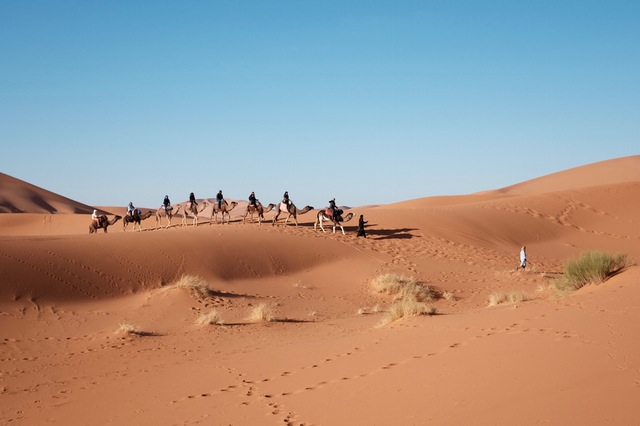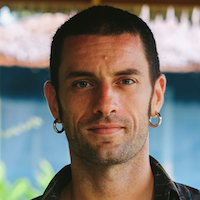
We human beings are quite fond of generalizations.
We love to put things—and people—into categories, label them, and play with the labels.
We do this all the time when talk about countries, cities, continents, social classes, and a hundred other ways to divide our experience of the world and try to make sense of it.
One of the widest generalizations I can think of is “East” and “West.”
Isn’t it amazing that we split the planet in two?
What do “East” and “West” mean, really?
Like all generalizations, the concepts of East and West can be valuable tools. With these words, we give names to something intangible, and this allows us to think and talk about it. We can then get busy classifying, comparing, dividing, measuring and evaluating. We can write books and articles about Eastern philosophy or Western values, dream about journeying Eastward (or Westward) to experience another way of living.
Yes, at a certain level people in different parts of the world have developed different flavors of the human experience. But things are always much more complicated than they first seem.
For example, it’s commonplace to say that “The West” has specialized in the investigation of the external world through science and technology, while “The East” has pursued knowledge of the internal world through spirituality and religion. That could be true, but we could also argue that mathematics (the basis of modern science) originated in the near east (Mesopotamia and Egypt), then spread into Greece and the rest of Europe. Conversely, the West has given birth to philosophers, spiritualists and explorers of the inner world like Pythagoras, Plato, the Christian mystics and many others.
No generalization is perfect.
The thing with generalizations is that they are abstract ideas—and yet, they carry emotional charge.
For those of us who are interested in spirituality, religion and conscious living, the word “East” is associated with a certain light. We tend to believe that spiritual traditions coming from “The East” are profound and elevated—and to equate “The West” with consumerism, materialism and shallow thinking.
This idealization of the East is one of the reasons why countless men and women from the West have travelled eastward in search of some deeper truth. (I, like many others, have made the same journey!)
For many Westerners, traveling to Asia or the Middle East suggests the possibility of deep, meaningful, life-changing experiences. And yet, most of these spiritual travelers, having spent years in India, China, Thailand or other Eastern countries, come to a strange realization:
Paradoxically, all they were looking for was available everywhere. They could access the depths of their soul while living in a Western city—just as well as on an Eastern mountaintop.
Socioeconomics aside, a complementary idealization of “The West” brings thousands of youth from Asia, desperately trying to emulate the traits of “Western” culture. One of the most striking examples is the way Japanese animation cartoons portrait their characters, with exaggerated and almost caricatural western features (round eyes, blonde hair)—even though those characters are supposed to be Asian.
Needless to say, after having struggled to embrace a Western lifestyle, many Eastern men and women realize that all they had been hunting for—freedom, abundance, security, love—does not depend on any specific lifestyle, but comes from within.
How can that be?
The unperishable truths of human experience aren’t confined to specific places. Wherever there is a man or woman who feels and thinks, there lies the possibility to access everything that any spiritual tradition or culture has to offer. There is no need to go anywhere to “find” the truth, because Truth is available within each of us at any time, everywhere.
It is one of the ironies of existence that many of us actually need to roam the world for years, just to discover that there is nothing that we can find “there” which is not, in its purest and most pristine form, also “here”—wherever “here” is for us.
Perhaps, we are better off by using such generic words as East and West for what they really are: useful tools to hold a discussion, but nothing more.
There will be a time when we will think of our planet as one big country—where the factors that unite us are overwhelmingly more important than any division our mind might like to trace.
~
Author: Raffaello Manacorda
Image: Pexels // Palma Hutabarat/Flickr
Editors: Toby Israel; Renée Picard
~






Read 0 comments and reply